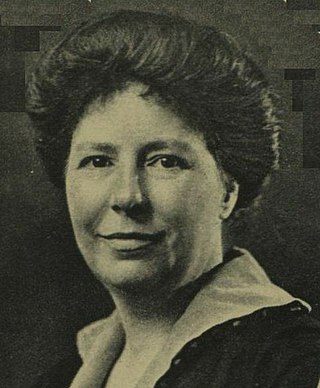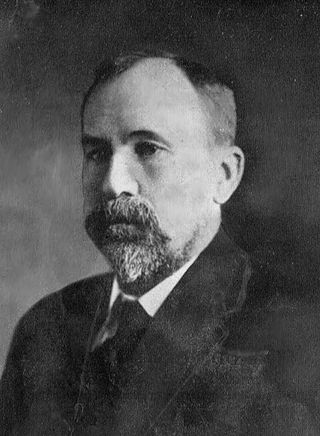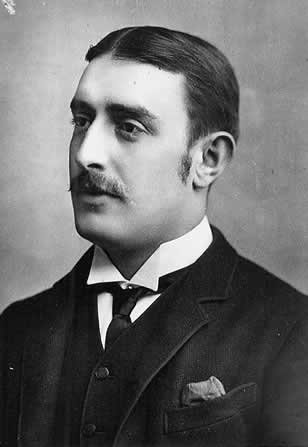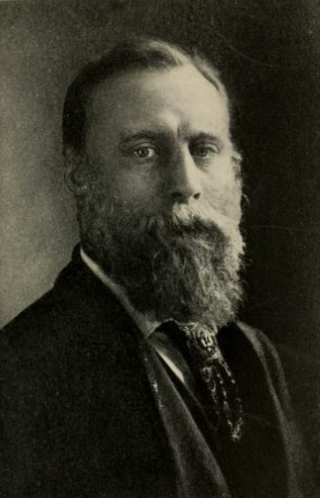
The Society for Psychical Research (SPR) is a nonprofit organisation in the United Kingdom. Its stated purpose is to understand events and abilities commonly described as psychic or paranormal. It describes itself as the "first society to conduct organised scholarly research into human experiences that challenge contemporary scientific models." It does not, however, since its inception in 1882, hold any corporate opinions: SPR members assert a variety of beliefs with regard to the nature of the phenomena studied.

Frederic William Henry Myers was a British poet, classicist, philologist, and a founder of the Society for Psychical Research. Myers' work on psychical research and his ideas about a "subliminal self" were influential in his time, but have not been accepted by the scientific community.

Spiritualism is a social religious movement popular in the nineteenth and early twentieth centuries, according to which an individual's awareness persists after death and may be contacted by the living. The afterlife, or the "spirit world", is seen by spiritualists not as a static place, but as one in which spirits continue to interact and evolve. These two beliefs—that contact with spirits is possible, and that spirits are more advanced than humans—lead spiritualists to the belief that spirits are capable of advising the living on moral and ethical issues and the nature of God. Some spiritualists follow "spirit guides"—specific spirits relied upon for spiritual direction.

A séance or seance is an attempt to communicate with spirits. The word séance comes from the French word for "session", from the Old French seoir, "to sit". In French, the word's meaning is quite general and mundane: one may, for example, speak of "une séance de cinéma". In English, however, the word came to be used specifically for a meeting of people who are gathered to receive messages from ghosts or to listen to a spirit medium discourse with or relay messages from spirits. In modern English usage, participants need not be seated while engaged in a séance.

The National Laboratory of Psychical Research was established in 1926 by Harry Price, at 16 Queensberry Place, London. Its aim was "to investigate in a dispassionate manner and by purely scientific means every phase of psychic or alleged psychic phenomena". The honorary president was Lord Sands, K.C., LL.D., acting president was H. G. Bois, and the honorary director was Harry Price. In 1930 the Laboratory moved from Queensberry Square, where it had been a tenant of the London Spiritualist Alliance to 13 Roland Gardens. In 1938, its library was transferred on loan to the University of London.

Victoria Helen McCrae Duncan was a Scottish medium best known as the last person to be imprisoned under the Witchcraft Act 1735 for fraudulent claims. She was famous for producing ectoplasm which was proved to be made from cheesecloth.

Frank Podmore was an English author and founding member of the Fabian Society as well as an influential member of the Society for Psychical Research. He is known for his interest in spiritualism, which he eventually developed a sceptical attitude towards, specifically the claims of mediumship which he attacked in his history of mediumship, The New Spiritualism (1910). However, he defended other spiritualist beliefs such as telepathy and ghosts.

Mediumship is the practice of purportedly mediating communication between familiar spirits or spirits of the dead and living human beings. Practitioners are known as "mediums" or "spirit mediums". There are different types of mediumship or spirit channelling, including séance tables, trance, and ouija. The practice is associated with spiritualism and spiritism. A similar New Age practice is known as channeling.

Eusapia Palladino was an Italian Spiritualist physical medium. She claimed extraordinary powers such as the ability to levitate tables, communicate with the dead through her spirit guide John King, and to produce other supernatural phenomena.

In spiritualism, ectoplasm, also known as simply ecto, is a substance or spiritual energy "exteriorized" by physical mediums. It was coined in 1894 by psychical researcher Charles Richet. Although the term is widespread in popular culture, there is no scientific evidence that ectoplasm exists and many purported examples were exposed as hoaxes fashioned from cheesecloth, gauze or other natural substances.

Eleanor Mildred Sidgwick was a physics researcher assisting Lord Rayleigh, an activist for the higher education of women, Principal of Newnham College of the University of Cambridge, and a leading figure in the Society for Psychical Research.
The American Society for Psychical Research (ASPR) is the oldest psychical research organization in the United States dedicated to parapsychology. It maintains offices and a library, in New York City, which are open to both members and the general public. The society has an open membership, anyone with an interest in psychical research is invited to join. It maintains a website; and publishes the quarterly Journal of the American Society for Psychical Research.

Leonora Piper was a famous American trance medium in the area of Spiritualism. Piper was the subject of intense interest and investigation by American and British psychic research associations during the early 20th century, most notably William James and the Society for Psychical Research.

The cross-correspondences refers to a series of automatic scripts and trance utterances from a group of automatic writers and mediums, involving members of the Society for Psychical Research (SPR). According to psychical researchers the correspondences when put together convey intelligible messages either from spirits of the dead or telepathy.

Gladys Osborne Leonard was a British trance medium, renowned for her work with the Society for Psychical Research. Although psychical researchers such as Oliver Lodge were convinced she had communicated with spirits, skeptical researchers were convinced that Leonard's trance control was a case of dissociative identity disorder.

James Hervey Hyslop, Ph.D., LL.D, was an American psychical researcher, psychologist, and professor of ethics and logic at Columbia University. He was one of the first American psychologists to connect psychology with psychic phenomena. In 1906 he helped reorganize the American Society for Psychical Research (ASPR) in New York City and served as the secretary-treasurer for the organization until his death.

William Eglinton (1857–1933), also known as William Eglington was a British spiritualist medium who was exposed as a fraud.

Richard Hodgson was an Australian-born psychical researcher who investigated spiritualist mediums such as Eusapia Palladino and Leonora Piper. During his later life, Hodgson became a spiritualist medium himself and believed to be in communication with spirits.

Kathleen Goligher was an Irish spiritualist medium. Goligher was endorsed by engineer William Jackson Crawford who wrote three books about her. She was exposed as a fraud by physicist Edmund Edward Fournier d'Albe in 1921.

Annie Fairlamb Mellon (1850–1938) also known as Mrs. J. B. Mellon was a British materialization medium.



















